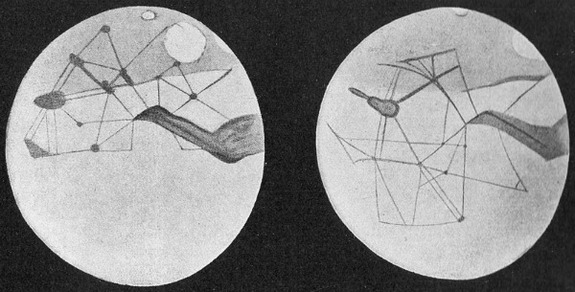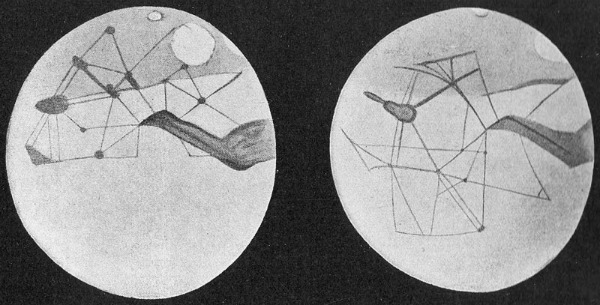Skip to comments.
Proposed NASA Europa Mission To Drill Into Icy Crust Of Jupiter Moon To Search For Alien Life
Tech Times ^
| February 11, 2017
| Allan Adamson
Posted on 02/13/2017 6:16:26 AM PST by C19fan
The NASA-employed Science Definition Team has been crafting a plan to launch a mission that would search for alien life on Jupiter's icy moon Europa.
The extraterrestrial world of Europa is considered as among the most likely places in the solar system to have the ability to support life as we know it. Scientists have gathered evidence that the salty ocean that lurks beneath the icy crust of the moon could be hospitable to life. Recent models also hint that the icy world can produce oxygen and hydrogen, which suggests it may have the necessary energy to support life.
(Excerpt) Read more at techtimes.com ...
TOPICS: Astronomy; Science
KEYWORDS: jupiter; life
Navigation: use the links below to view more comments.
first previous 1-20, 21-36 last
To: RadiationRomeo
How malevolent could aliens be that can’t free themselves from ice pierced by a drill our spacecraft can carry?
21
posted on
02/13/2017 7:06:36 AM PST
by
Rinnwald
To: ETL
They clearly have an interstate highway system!
22
posted on
02/13/2017 7:06:54 AM PST
by
Mr. K
( Trump kicked her ass 2-to-1 if you remove all the voter fraud.)
To: knarf
You really don’t ‘get’ exploration, do you...?
23
posted on
02/13/2017 7:07:58 AM PST
by
Mr. K
( Trump kicked her ass 2-to-1 if you remove all the voter fraud.)
To: mythenjoseph
I would but he blinded me with science!
24
posted on
02/13/2017 7:09:04 AM PST
by
Mr. K
( Trump kicked her ass 2-to-1 if you remove all the voter fraud.)
To: Mr. K; knarf
Tracing the Canals of Mars: An Astronomer's Obsession
By Richard Milner, Astrobiology Magazine | October 6, 2011
About 120 years ago, however, at least one prominent astronomer was convinced that Mars not only supported life, but was home to an advanced civilization. Martians, the theory went, had built an extensive network of canals to draw water down from supposed icecaps at the Red Planet’s poles to irrigate a world that was drying out.
Martian canals as depicted by Percival Lowell.
Credit: Public domain
The man who 'discovered civilization' on Mars
These immense illusory earthworks (Marsworks?) had been studied in detail by one of the greatest astronomers of the late nineteenth and early twentieth centuries, the wealthy and socially prominent Percival Lowell.
In his day, Lowell was far and away the most influential popularizer of planetary science in America. His widely read books included "Mars" (1895), "Mars and Its Canals" (1906), and "Mars As the Abode of Life" (1908).
Lowell was not the first to believe he saw vast canals on Mars. That distinction belongs to the Italian astronomer Giovanni Schiaparelli, who in 1877 reported the appearance of certain long, thin lines he called canali, meaning channels in Italian. But he stopped short of attributing them to the work of intelligent Martians. (“Leave the Martians; take the canali.”)
Lowell carried the matter much further. Captivated by these sketchily observed — and ultimately nonexistent — phenomena, Lowell spent many years attempting to elucidate and theorize about them. The lines, he thought, must “run for thousands of miles in an unswerving direction, as far relatively as from London to Bombay, and as far actually as from Boston to San Francisco.”
He thought the Red Planet must once have been covered by lush greenery, but was now desiccated; the "canals" were an admirable attempt by intelligent and cooperative beings to save their home planet. [5 Bold Claims of Alien Life]
The Canals of Mars became one of the most intense and wrongheaded obsessions in the history of science, capturing the popular imagination through dozens of newspaper and magazine articles, as well as such classic science fiction as "The Princess of Mars," a pulp classic by Edgar Rice Burroughs, who also created the immortal "Tarzan of the Apes." (Burroughs had a rare gift for knowing what the public would adore, from Ape-Men to Little Green Men.)
Despite the fact that his "canals" and elaborate descriptions of Martian civilization turned out to be the product of self-delusion (though not a deliberate hoax), Lowell’s name remains honored in the annals of astronomy. ..."
http://www.space.com/13197-mars-canals-water-history-lowell.html
25
posted on
02/13/2017 7:12:05 AM PST
by
ETL
(Trump admin apparently playing "good cop, bad cop" with thug Putin (see my FR Home page))
To: C19fan
Europa’s surface looks flat but is it
To: C19fan
27
posted on
02/13/2017 7:36:21 AM PST
by
pabianice
(LINE)
To: Mr. K
To: mythenjoseph
Thomas Dolby has a great tune entitled “Europa”....check it out. That song came to mind to. "The Golden Age of Wireless" is a desert island disk for me.
29
posted on
02/13/2017 7:41:27 AM PST
by
dfwgator
To: C19fan
It would seem to any thinking person that one of the requisites for “life” as it were, is heat. The chemical reactions that are life need some level of heat above absolute zero.
At -218.79 degrees C, I can’t imagine there is (voice of Howell Heflin) a whole lot of reactin’ goin’ on out there. Especially since absolute zero is at -273 degrees C
What ever life forms are there may very well be in some sort of cryo-stasis.
30
posted on
02/13/2017 7:56:48 AM PST
by
Ouderkirk
(To the left, everything must evidence that this or that strand of leftist theory is true)
To: Ouderkirk
Underneath the surface we do not know how warm it is. Jupiter tides heat things up.
31
posted on
02/13/2017 8:01:08 AM PST
by
BigEdLB
(To Dimwitocrats: We won. You lost. Get used to it.)
To: ETL
Lowell also launched the search for a ninth planet, beyond Neptune. When Pluto was discovered in 1930 (long after Lowell’s death) at the observatory built by Lowell, he was given credit although the actual discoverer was Clyde Tombaugh. The proposal to name the new planet Pluto won favor in part because the first two letters were the initials of Percival Lowell.
To: knarf
Who THINKS up these things and do we actually go ahead and program the minds of thousands of people to think it is normal to fly to a moon
of a planet (not the planet itself) [...]What does it matter that Europa is not a planet, but rather only a moon? "Moon" is a manmade construct. And anyway, if Europa were not orbiting Jupiter, but rather on its own independent orbit (e.g., between Earth and Mars), it would most certainly qualify as a planet.
I am all for space exploration. I'm even in for the search for intelligent, non human life, but I don't think it is below the surface of a Jupiter moon.
Suggest some better, reachable targets than Europa.
Regards,
33
posted on
02/13/2017 8:20:39 AM PST
by
alexander_busek
(Extraordinary claims require extraordinary evidence.)
To: Verginius Rufus
“the Italian astronomer Giovanni Schiaparelli, who in 1877 reported the appearance of certain long, thin lines he called canali”
When I first heard this decades ago I thought the word he used was “cannoli”, as in “Leave the gun, take the cannoli”! Lol!
34
posted on
02/13/2017 8:37:27 AM PST
by
ETL
(Trump admin apparently playing "good cop, bad cop" with thug Putin (see my FR Home page))
To: C19fan
Oh no !!!
One little hole and it'll deflate or go zipping around the solar system like a balloon that's inflated then released rather than being tied.
Riot in the streets, burn cars, break windows, Save Jupiter and our solar system !!!
35
posted on
02/13/2017 9:46:14 AM PST
by
Rashputin
(Jesus Christ doesn't evacuate His troops, He leads them to victory !!)
To: C19fan
What could possibly go wrong?
36
posted on
02/13/2017 10:00:31 AM PST
by
bgill
(From the CDC site, "We don't know how people are infected with Ebola")
Navigation: use the links below to view more comments.
first previous 1-20, 21-36 last
Disclaimer:
Opinions posted on Free Republic are those of the individual
posters and do not necessarily represent the opinion of Free Republic or its
management. All materials posted herein are protected by copyright law and the
exemption for fair use of copyrighted works.
FreeRepublic.com is powered by software copyright 2000-2008 John Robinson

